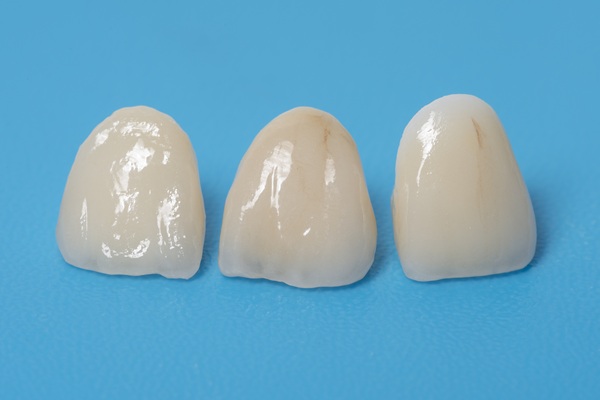How a Ceramic Crown Can Save Your Oral Health

Ceramic crowns are an effective solution for restoring damaged teeth and improving overall oral health. As dental technology advances, ceramic crowns have become popular for patients seeking functionality and aesthetics in their smiles. Understanding how ceramic crowns can benefit oral health is essential for making informed decisions about dental care.
What are ceramic crowns?
Ceramic crowns are tooth-shaped caps made entirely of ceramic material, designed to cover and protect a damaged or decayed tooth. Unlike metal crowns, ceramic crowns offer a natural appearance that closely resembles the color and clarity of natural teeth. This makes them an ideal option for restoring front teeth or any visible areas in the mouth.
Benefits of ceramic crowns
- Aesthetic appeal: Ceramic crowns provide a seamless blend with natural teeth, enhancing the smile's overall appearance. The material can be color-matched to existing teeth, ensuring a harmonious look.
- Biocompatibility: Ceramic is a biocompatible material, reducing the risk of allergic reactions or sensitivities that can occur with metal crowns. This makes ceramic crowns a safe choice for patients with metal allergies.
- Durability and strength: Modern ceramic materials can withstand the forces of biting and chewing. Ceramic crowns offer long-lasting durability when properly cared for, contributing to sustained oral health.
- Protects damaged teeth: Ceramic crowns encase the entire visible portion of a tooth, protecting it from further decay or damage. This is crucial for teeth that sustain significant decay or fractures.
- Restores everyday function: By restoring the shape and size of a damaged tooth, ceramic crowns enable proper biting and chewing functions. This prevents undue stress on surrounding teeth and helps maintain the integrity of the bite.
- Prevents tooth loss: Protecting weakened teeth with ceramic crowns can prevent tooth loss, which is vital for maintaining jawbone density and the alignment of surrounding teeth.
- Improved oral hygiene: Damaged or decayed teeth can harbor bacteria, leading to gum disease and other oral health issues. Covering these teeth with ceramic crowns makes it easier to maintain oral hygiene and reduce the risk of infections.
When to consider ceramic crowns
Dental professionals recommend ceramic crowns in multiple situations. For example, a ceramic crown provides a more comprehensive solution for severe tooth decay where a filling is insufficient to restore a tooth affected by extensive decay. Ceramic crowns can also restore cracked teeth, reinforcing their strength and functionality.
When teeth have undergone root canal treatment, they often become brittle. Fortunately, ceramic crowns protect them from future fractures. Additionally, ceramic crowns offer cosmetic benefits, particularly when the patient's teeth are misshapen, discolored, or uneven. These restorations can improve the appearance of the patient's smile.
Caring for ceramic crowns
Maintaining ceramic crowns involves regular dental hygiene practices. Patients should continue to brush twice daily and floss regularly to prevent plaque buildup around the crown. While ceramic crowns are durable, avoiding chewing hard foods like candy and ice can prevent potential damage. Routine dental visits also allow for professional cleanings and assessments to ensure the crown remains in good condition.
Ask about ceramic crowns
Ceramic crowns help restore dental health and enhance the smile's appearance. Have you been looking for a way to improve the health and look of your smile? A ceramic crown may be what you are looking for. Schedule a consultation visit today at White Crown Dental's Santa Clarita office for more information about our dental restoration services.
Request an appointment here: https://www.whitecrowndental.com or call White Crown Dental at (661) 425-0008 for an appointment in our Santa Clarita office.
Check out what others are saying about our dental services on Yelp: Cermic Crowns in Santa Clarita, CA.
Related Posts
Do you need a dental crown? Dental crowns serve as protective covers for damaged or weakened teeth, restoring their strength and natural shape. There are a variety of materials available to meet your unique needs and help you smile with confidence again.Porcelain-fused-to-metal (PFM) crowns have been used in dentistry for years. They combine a tooth-colored…
Dentists can repair the smile with a variety of dental restorations, and zirconia crowns are an increasingly popular option. Not only do these crowns look natural, but they are also highly resistant to cracking and wear. This makes zirconia crowns an effective, long-lasting restoration for moderate to severe tooth damage.Zirconia crowns are dental restorations made…
A dental bridge is often an important tooth-replacement option when one or more teeth are missing in the same area. Gaps in the smile affect chewing, speech, and overall oral health. Over time, missing teeth can also affect jaw alignment and place extra stress on the remaining teeth. Understanding how a bridge works helps patients…
A porcelain fixed bridge is outstanding as a dental restoration that can replicate the appearance and function of natural teeth. The dental bridge is an option to consider when seeking to replace one or multiple teeth that are damaged or lost. A dentist can design the porcelain fixed bridge to mimic the look of natural…
